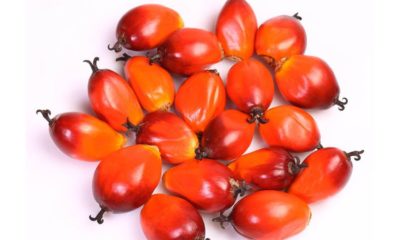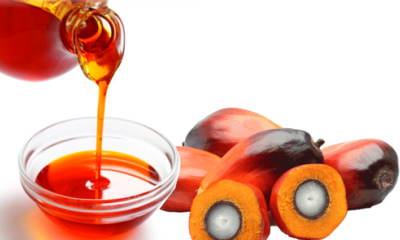- Coalition Protests EU’s Planned Ban of Palm Oil
A coalition of palm oil farmers, under the aegis of Farmers Unite, on Tuesday protested what it described as the discriminatory campaign and trade policy by the European Union against the producers of palm oil.
The farmers also objected to the ongoing campaign by the EU Parliament “to ban and restrict the use of palm oil in renewable energy programmes and the food sector.”
Members of the coalition, according to its promoters and a non-profit organisation, Initiative for Public Policy Analysis, have vowed to commit themselves to fighting threats against their livelihoods by western politicians, the political elite, media, and European- funded Non-governmental Organisations.
The coalition consists of small farmers and their families in Africa and Asia.
“Their campaign is based on junk science, deceit and falsehoods. If they succeed, this would have a chilling, negative impact on livelihoods, investment and trade for small farmers of oil palm across the world. Farmers Unite is organised to defeat them, their policies and to protect our way of life,” IPPA stated.
The project is supported by APKASINDO, National Association of Smallholders Malaysia, National Palm Produce Association of Nigeria, Palm Oil Smallholders Association of Nigeria, and Responsible Palm Oil Initiatives (Indonesia).
The Director of IPPA and Farmers Unite, Thompson Ayodele, in a statement, raised the alarm that organisations, including the European Commission and Parliament, were desperate to prevent the use of palm oil entirely, whether in food, biofuel or consumer goods.
He said, “They seek to define palm oil as socially unacceptable, unsafe and as risky.
“The goal of the elite at the European Commission and Parliament is to prevent the use of palm oil entirely, whether in food, biofuel or consumer goods.
“In doing this, they threaten the future livelihoods of tens of millions of small farmers in developing nations. African and Asian palm oil farmers and their communities must rise up against this threat to our livelihoods and families.
“Farmers Unite calls on the EU Commission to drop the discriminatory ‘deforestation criteria’ and end its efforts to impoverish African and Asian small farmers.
“Endorsement by European leaders and the European Commission of the ‘Deforestation Criteria’ is an endorsement of Donald Trump’s protectionist and isolationist trade policies.”
The coalition also protested the promotion of European sustainability rules, such as the Amsterdam Declaration, which discriminated against developing world farmers and harm the economic and social advancement of Middle Income and Least Developed Countries.
Other grievances of the coalition included EU’s ongoing efforts to increase barriers to palm oil exports, including developing risk-related criteria for palm oil based on flawed indirect land-use change models, high carbon stock, and ‘deforestation criteria’; failing to ban EU member states from using ‘no palm oil’ labelling; development of an EU regulation that will see the imposition of a European conceived certification scheme on palm oil producing countries.
Ayodele said, “We object to the European Union’s continued hostile actions, including blocking or restricting palm oil exports to the EU; funding organisations that make negative and unsubstantiated claims about palm oil; discouraging investment in oil palm farming, failing to acknowledge the contribution palm oil makes to achieving the United Nations’ Sustainable Development Goals; and failing to acknowledge that many other commodities have a much higher deforestation footprint.
“We object to the European Parliament’s ongoing campaign to ban and restrict the use of palm oil in renewable energy programmes and the food sector.”

 Naira4 weeks ago
Naira4 weeks ago
 Naira4 weeks ago
Naira4 weeks ago
 Travel3 weeks ago
Travel3 weeks ago
 Jobs4 weeks ago
Jobs4 weeks ago
 Naira3 weeks ago
Naira3 weeks ago
 Naira3 weeks ago
Naira3 weeks ago
 Investment4 weeks ago
Investment4 weeks ago
 Travel4 weeks ago
Travel4 weeks ago




















